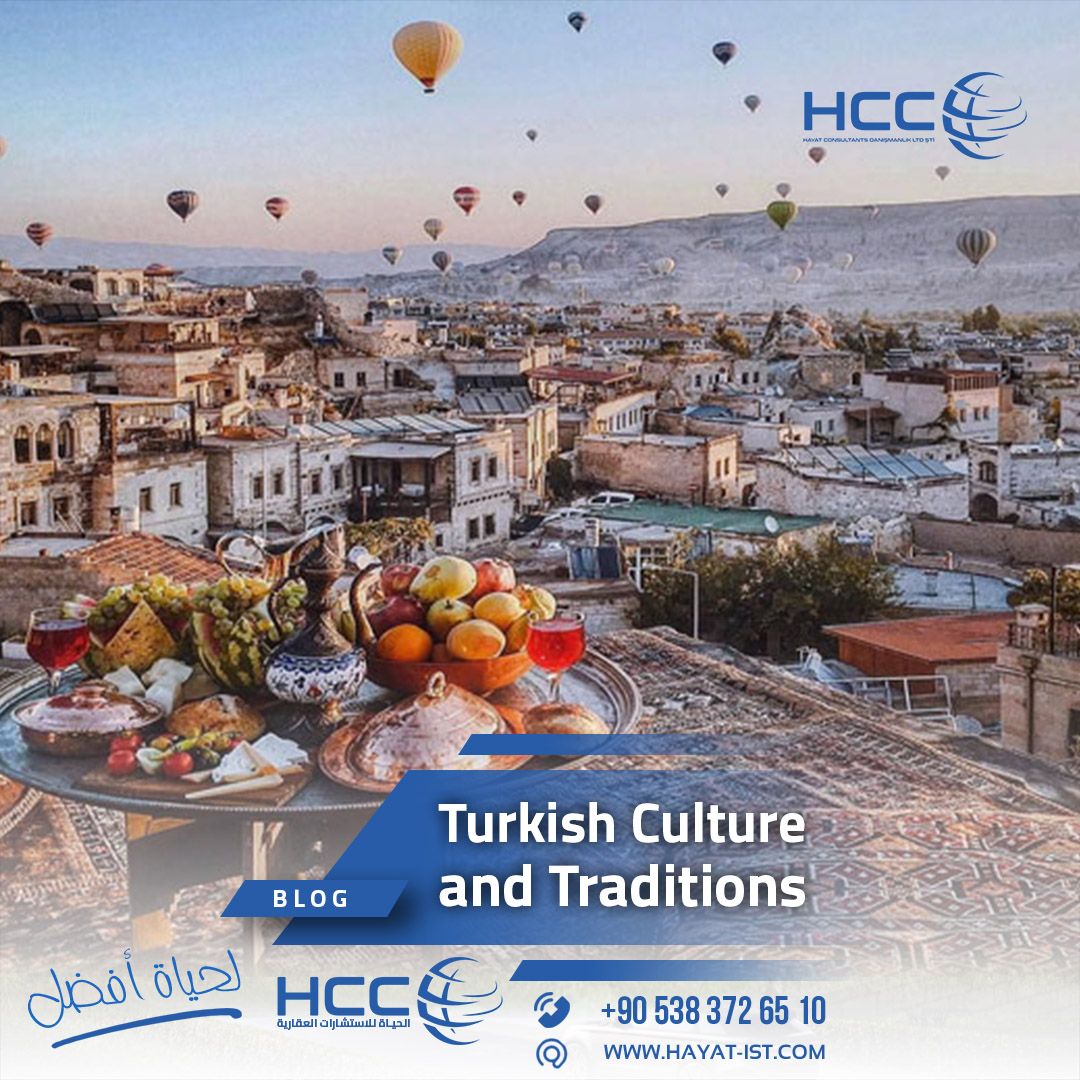
![]()
Turkish Culture and Traditions
In this article, we will talk about Turkish culture and traditions:
In every human society, customs and traditions arise as a result of the need for interaction and coexistence among the members of the society. Following and inheriting them constitutes a bond that brings together individuals and facilitates their means of living and coexistence together. With the independence of societies from each other, differences arise between them in customs and traditions resulting from different circumstances or temperaments. By recognizing these differences, it becomes easier to deal with differences and contradictions, and the circle of understanding and cooperation expands, which helps to spread peace.
The Turkish people are distinguished by a group of customs and traditions that have accumulated over the centuries, but they are not much different from the customs and traditions of other peoples, who have long shared the history and religious beliefs of the Turkish people, such as the Arab people, the Kurdish people, the Bosnian people and the Albanian people. and others.
In Turkey, elements of different nationalities, religions, and sects meet, and the one who comes to it, from those countries from which it was estranged, notices many similarities with the customs and traditions that he knows and lives. However, there are still minor differences that are better known to help more familiarity and integration.
Turkish culture and traditions
1-Respecting the elderly and kissing their hands:
One of the most important traditions of the Turkish people is respect for the elderly, giving them room in councils, and extending a helping hand to them. Some kiss elderly people hands as a kind of courtesy, even when he is not close.
2- Greetings when meeting:
There are phrases that the Turk repeats as a greeting when he meets any person, and they differ according to the time of day or night, as well as according to the degree of relationship between the two parties.
And some may influence when meeting with strangers to greet them by bringing his right hand to his chest, while repeating the appropriate phrase.
As for the greeting from a man to a woman, the man does not extend his hand to shake hands unless the woman does so. Otherwise, it is sufficient for him to bring his right hand to his chest while repeating the appropriate phrase.
3- Taking off shoes at the door of the house:
It is the habit of many Turks to take off their shoes at the door of the house, out of concern for the cleanliness of the house, and the guests do that as well, unless the host asks not to take off the shoes. And some may put light shoes at the door of the house for use by the guests.
4- Tea drink:
Turks drink a lot of tea daily, and it is considered the main drink of hospitality, so they repeat pouring it for the guest until he announces that he does not want to eat more.
5- Spray lemon perfume:
Turks often spray diluted lemon perfume (cologne) on the hands of guests, when receiving them, and when seeing them off. They do so much on religious and national holidays and occasions.
6- Celebrating and exchanging greetings on holidays and religious occasions:
Turks show great interest in holidays and religious occasions (the month of Ramadan, Eid al-Fitr, Eid al-Adha, and the Prophet’s birthday), so they hold great celebrations for them in mosques and in homes, and they exchange congratulations and blessings on these occasions. And in the month of Ramadan, in particular, they hold Ramadan banquets in public squares and mosques, or in some private halls, to break the fast at sunset, and sometimes for the pre-dawn meal. Invitation to these banquets is considered public for whoever wants and wants, and for passers-by.
7- Participation in private joys and sorrows:
Turks are interested in sharing each other’s joys and sorrows, so they exchange gifts and congratulations in joys, and offer condolences and sympathy in sorrows.
8-In engagement and marriage:
The engagement takes place in the traditional conditions of the Turks, whether before or after the prior acquaintance between the two fiancées, in which the elders of the fiancée’s family go to the house of the fiancée’s family, to ask for her hand, and they may bring bouquets of flowers with them. Expressions of appreciation and respect are exchanged, followed by a hand request. The answer may be in the same session or after a time limit needed by the fiancée’s family to find out the suitor’s condition.
Then, after acceptance and agreement on the dowry and other requirements, the marriage contract takes place in the civil court. What is required by the contract in court are the same legal conditions, but some Turks insist on concluding another contract with a religious circle.
Then, after the marriage contract, the marriage ceremony takes place either at home or in one of the public halls designated for that. The celebration may or may not be followed by the honeymoon, depending on what is agreed upon. In both cases, gifts are given to relatives and friends.
9- Giving food to relatives and neighbours:
It is the custom of traditional or rural communities in Turkey to exchange food gifts for each new or distinctive food or homemade sweets.
10- A gift when visiting a friend:
When visiting a friend, the visitor carries with him a bouquet of flowers, some sweets, or a box of chocolates.
Al-Hayat Company is at your service to provide all the necessary additional information and details about Turkey and other things that are needed. You can contact us by Email or by phone.
Email address: info@hayat-ist.com
Phone: 00905383726510



